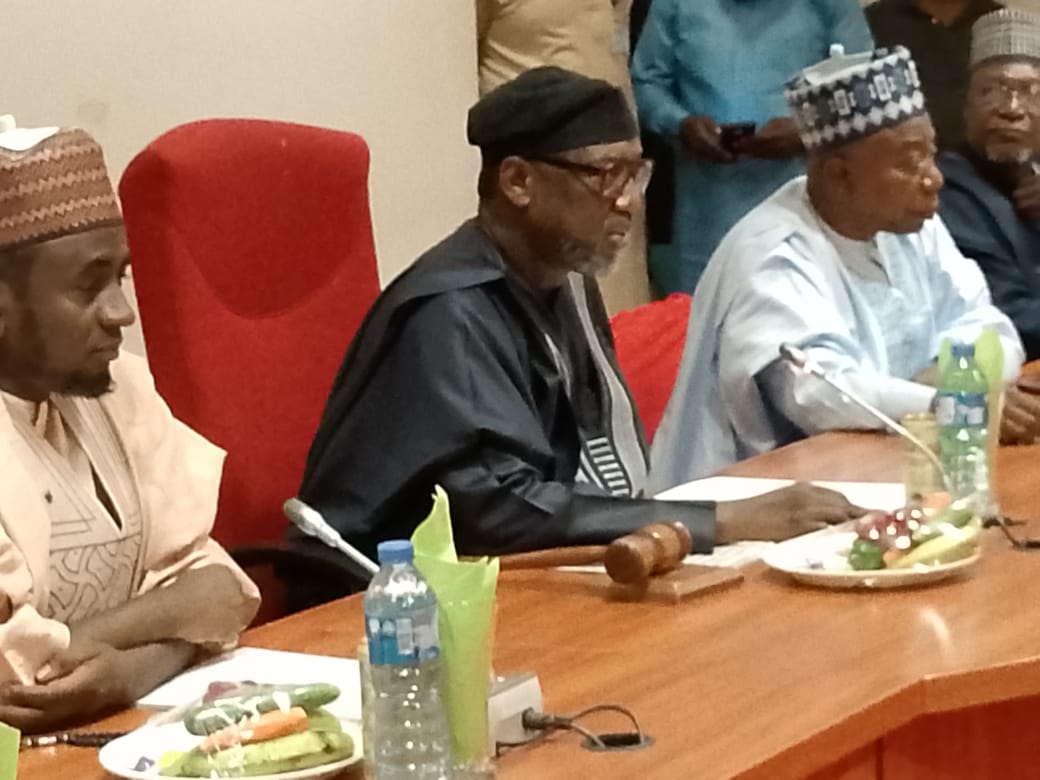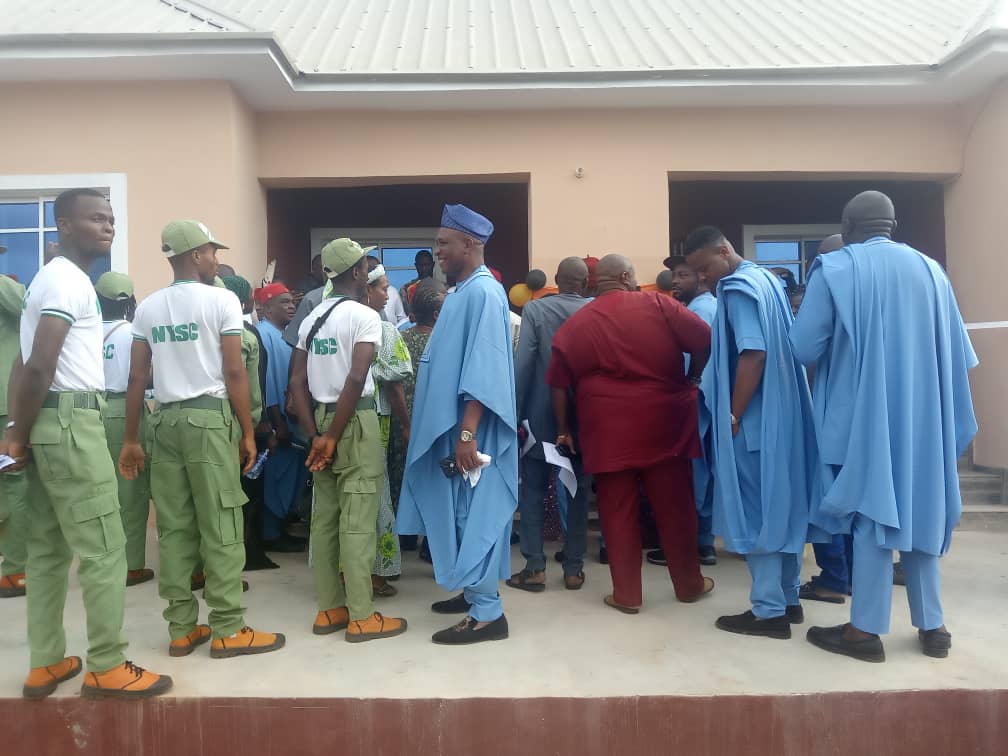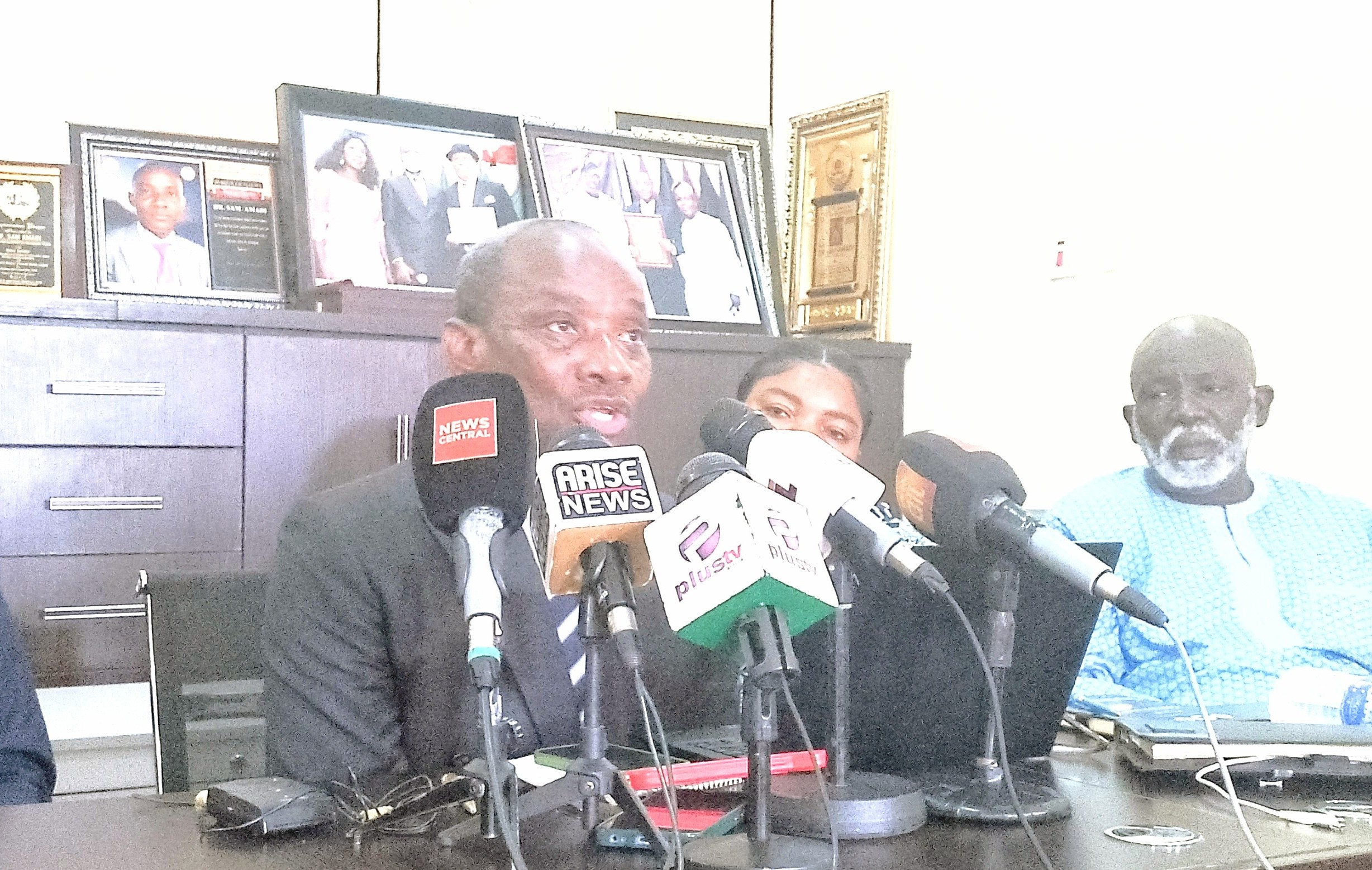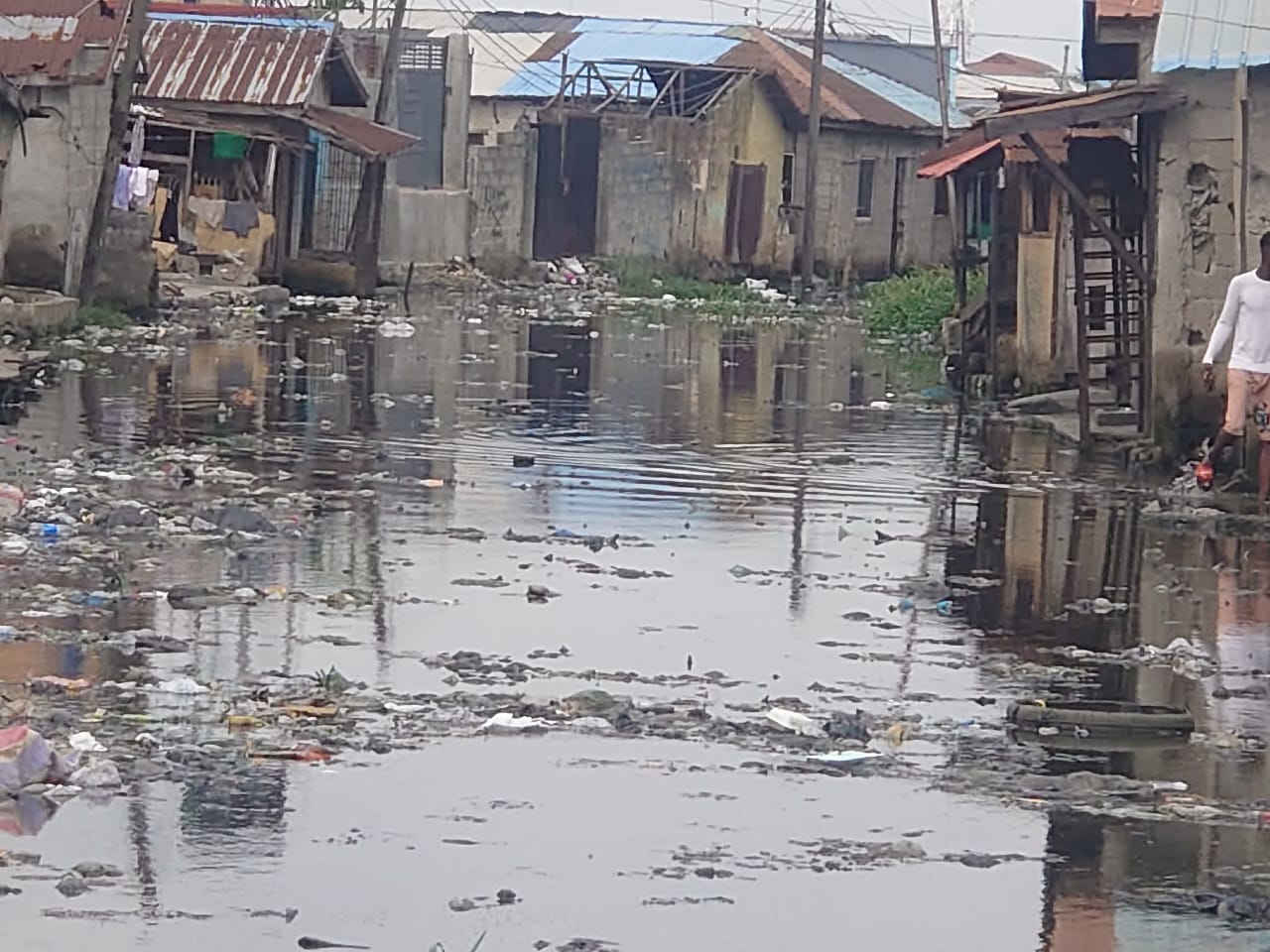Flooding: Water Minister Cautions Against Red Alert of Water Volume Into Rivers, Extends Sympathy to Borno Govt

By Fatima Saka
The Honorable Minister of Water Resources and Sanitation, Engr. Prof. Joseph Terlumun Utsev, FNSE, has issued a warning to Nigerians regarding the daily influx of rainfall water into the rivers, signaling a significant rise in flow levels approaching a RED alert.
Addressing the flooding situation in Borno State, the minister mentioned that the flood catastrophe affecting Maiduguri and Jere areas of Borno State was primarily caused by the overflow of water from Alau Dam.
During a press briefing in Abuja on Friday, Professor Utsev expressed his heartfelt sympathy to the Borno state government, conveying on behalf of the Federal Government of Nigeria and the Federal Ministry of Water Resources and Sanitation, deep condolences to the government and the residents of Borno State following the recent flood disaster.

The minister emphasized that the flood calamity has directly and indirectly impacted millions of Nigerians, resulting in the destruction of homes, properties, farmlands, roads, vital infrastructure, and assets, among others.
He stands in solidarity with all affected individuals as the nation navigate through these challenging times.
He further explained that the overflow from Ngadda river, a significant tributary of River Yedzaram, led to the overflow of Alau Dam, located approximately 10 kilometers from Maiduguri city center.
in assessing the dam, accompanied by the Minister of State, Rt. Hon. Bello Mohammad Goronyo, and other officials from the Ministry, the minister visited Maiduguri to show support to the Governor of Borno State and assess the extent of the devastation caused by the flood.
The minister highlighted that technical experts from the Ministry, National Water Resources Institute (NWRI), Nigeria Hydrological Services Agency (NIHSA), and Chad Basin Development Authority are currently on-site at Alau Dam to evaluate the situation and the impact of the flood disaster, with the aim of providing valuable insights and recommendations.
He also underscored that similar assessments have been conducted in Bauchi, Sokoto, and Kebbi States, with appropriate actions being taken.
Caution
In terms of caution, Professor Utsev advised citizens to be cautious as they recover from the disaster, as the water supply may be contaminated. Hence, it is crucial to be mindful of this to prevent the potential outbreak of waterborne and communicable diseases.
“The water we drink may be contaminated, we should please be mindful of this, so as to avoid further outbreak of waterborne and communicable diseases.”
Warnings/Red Alert
Reiterating previous warnings, the minister recalled the flood scenarios for 2024 that were disseminated earlier in the year through the Annual Flood Outlook (AFO) publication by the Nigeria Hydrological Services Agency. The Flood Outlook identified high, moderate, and low flood risk areas in the country, with states like Borno, Bauchi, Jigawa, Taraba, Yobe, Benue, and Gombe among the 31 states listed as high flood risk areas.
As the nation mourns the losses in Borno, Yobe, Jigawa, Bauchi, and other affected states, Professor Utsev drew attention to the potential river flooding on rivers Niger and Benue, along with some of their tributaries.
Intervention Measures
Addressing the increased water volume being released into the rivers nationwide due to the effects of climate change, Professor Utsev emphasized the need for heightened vigilance and proactive measures to address any potential flooding across the country.
“We should increase vigilance on all ramifications and step up proactive measures to address any eventual flooding events in the southern part of the country.”
Recalling the establishment of the Presidential Committee on the Development of Strategic Plan for Preventing Flood Disasters in Nigeria, with the Ministry of Water Resources and Sanitation as the Steering Committee Chair, the minister mentioned that the committee’s report highlighted Ten (10) Strategic Areas to combat annual flooding in Nigeria. This includes the allocation of N108 billion Naira to 36 States by the President to mitigate perennial flooding in the country.
Action Plan
Urging for proactive measures, the minister called upon all government bodies at the sub-national level and stakeholders to heed early flood warning information from the Ministry and take preventive actions to avert future flooding incidents and activate response measures to alleviate the suffering of affected citizens.

Speaking on the Minister of State for Water Resources and Sanitation, Bello Muhammad Goronyo Esq, commended the press for their accuracy in reporting.
Moreover, he further stressed regarding recent reports of a collapsed dam, the minister clarified that there was no such incident. “A visit to Dadin-Kowa Dam, which reportedly collapsed, revealed no evidence of such an occurrence.”





